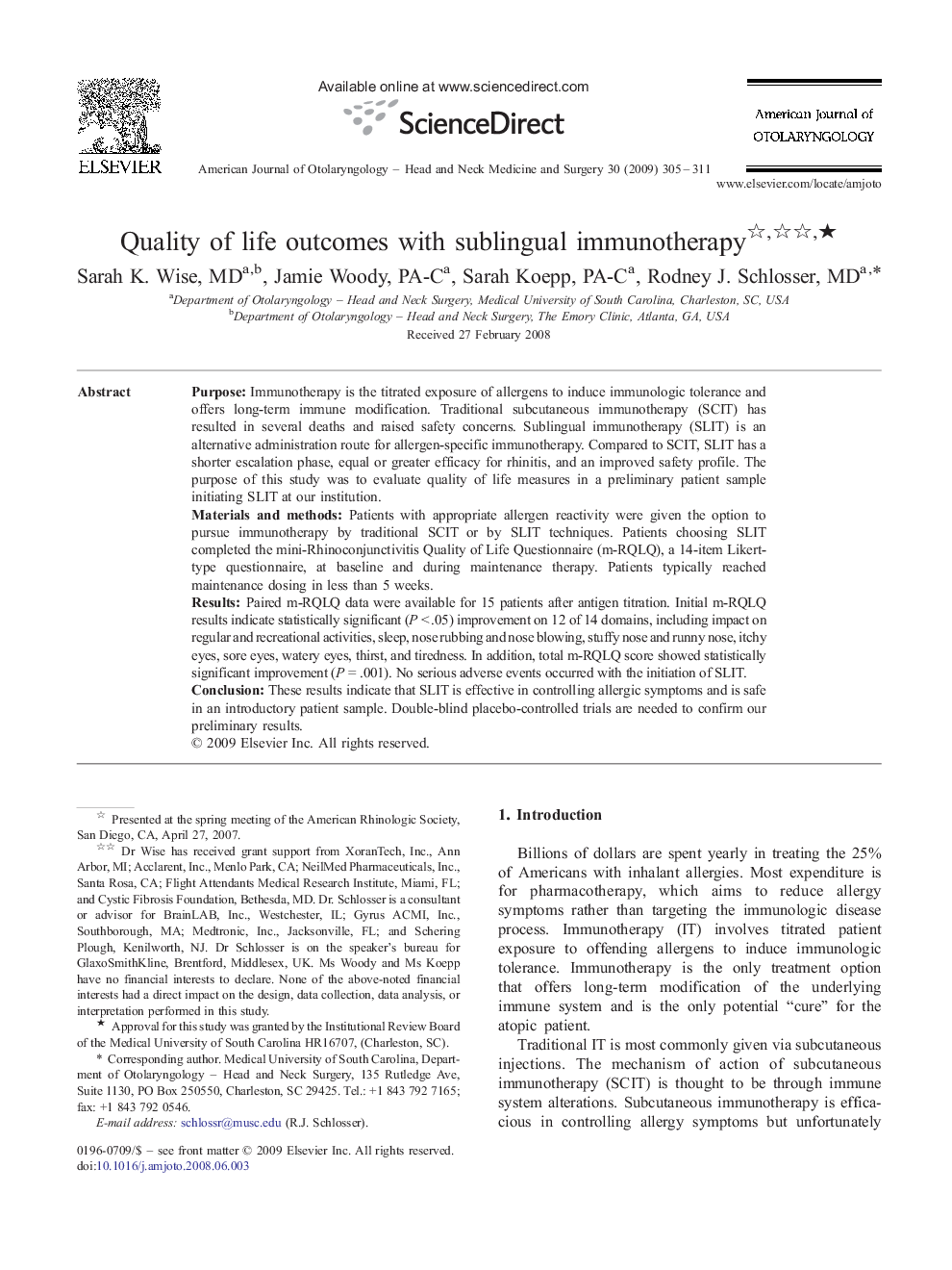| Article ID | Journal | Published Year | Pages | File Type |
|---|---|---|---|---|
| 4104141 | American Journal of Otolaryngology | 2009 | 7 Pages |
PurposeImmunotherapy is the titrated exposure of allergens to induce immunologic tolerance and offers long-term immune modification. Traditional subcutaneous immunotherapy (SCIT) has resulted in several deaths and raised safety concerns. Sublingual immunotherapy (SLIT) is an alternative administration route for allergen-specific immunotherapy. Compared to SCIT, SLIT has a shorter escalation phase, equal or greater efficacy for rhinitis, and an improved safety profile. The purpose of this study was to evaluate quality of life measures in a preliminary patient sample initiating SLIT at our institution.Materials and methodsPatients with appropriate allergen reactivity were given the option to pursue immunotherapy by traditional SCIT or by SLIT techniques. Patients choosing SLIT completed the mini-Rhinoconjunctivitis Quality of Life Questionnaire (m-RQLQ), a 14-item Likert-type questionnaire, at baseline and during maintenance therapy. Patients typically reached maintenance dosing in less than 5 weeks.ResultsPaired m-RQLQ data were available for 15 patients after antigen titration. Initial m-RQLQ results indicate statistically significant (P < .05) improvement on 12 of 14 domains, including impact on regular and recreational activities, sleep, nose rubbing and nose blowing, stuffy nose and runny nose, itchy eyes, sore eyes, watery eyes, thirst, and tiredness. In addition, total m-RQLQ score showed statistically significant improvement (P = .001). No serious adverse events occurred with the initiation of SLIT.ConclusionThese results indicate that SLIT is effective in controlling allergic symptoms and is safe in an introductory patient sample. Double-blind placebo-controlled trials are needed to confirm our preliminary results.
